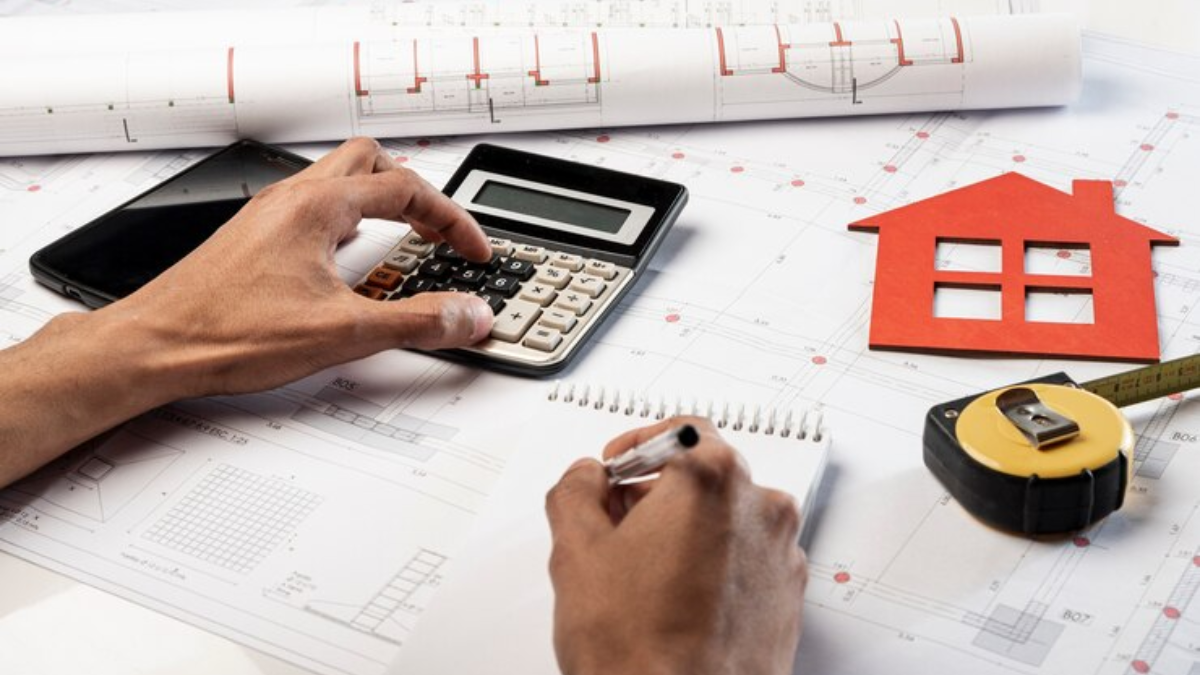Are you ready to embark on a journey into the world of GST in real estate?
Understanding how GST impacts the real estate industry is crucial for investors, homebuyers, and developers. Don’t worry; we have got you covered with all the information you need to navigate through this intricate system. This article aims to demystify the GST in real estate, providing readers with a comprehensive understanding of the charges and processes involved.
So, get your decoding skills ready as we crack the complexities of this tax structure and charging mechanism.
Understanding the basics of GST
The Goods and Services Tax (GST) has been a significant development in the Indian taxation system since its implementation in 2017. However, its impact on the real estate sector remains a topic of confusion and speculation for many.
To comprehend the implications of GST in real estate, it is crucial to grasp the fundamentals of this taxation system. GST is a widespread indirect tax imposed on the supply of goods and services throughout the nation. It replaced multiple central and state taxes, simplifying the tax structure and promoting a unified market. Under GST, real estate transactions are also subject to specific regulations and rates, which we will explore in detail in the subsequent sections.
Tax Structure for Real Estate under GST
Under GST, there are three types of taxes applicable to real estate – CGST (Central Goods & Services Tax), SGST (State Goods & Services Tax), and IGST (Integrated Goods & Services Tax).
CGST and SGST are applicable on intra-state transactions meaning when both supplier and recipient reside within the same state. The rates for these taxes range from 5% to 28%, depending on various factors such as type of property, value, etc.
On the other hand, IGST applies to inter-state transactions meaning when either supplier or recipient resides outside their state or when selling property across different states. The rate for IGST is equal
GST Calculation in Real Estate

Under GST, there are three types of taxes applicable to real estate – Central GST (CGST), State GST (SGST), and Integrated GST (IGST). The rates for these taxes vary depending on the type of property being bought or sold.
For under-construction properties, where both land and construction are involved, the applicable rate is 5% for residential properties and 12% for commercial properties. This is divided equally between CGST and SGST at a rate of 2.5% each for residential properties while at 6% each for commercial properties.
In the case of ready-to-move-in properties or completed projects where no further construction work is required, no GST is levied as it is considered a transfer of immovable property. However, if the developer adds additional amenities or facilities
Calculating GST for real estate transactions can be a complex process, considering the multiple variables involved. The value on which GST is levied includes the transaction value, any additional charges like maintenance fees, preferential location charges, or club membership fees, and the consideration for undivided shares in land.
However, certain exclusions, such as stamp duty and property tax, are not subject to GST. To simplify the calculation process, numerous online GST calculators are available, enabling buyers and sellers to determine their tax liabilities accurately.
Components of GST in Real Estate Transactions
GST, or Goods and Services Tax, is a value-added tax that has replaced multiple indirect taxes in India. Its implementation in real estate transactions has significantly impacted the industry and changed the way developers and buyers interact with each other. To better understand GST’s impact on real estate, it is essential to break down its components in this context.
1. Central GST (CGST)
Central GST is the tax levied by the central government on intra-state transactions of goods or services. In real estate transactions, CGST applies when properties are bought or sold within the same state. The current rate for CGST in real estate is 9%, which means if you buy a property for Rs. 50 lakhs, an additional Rs. 4.5 lakhs will be charged as CGST.
2. State GST (SGST)
State GST is similar to CGST but levied by the state government instead of the central government. It applies to intrastate transactions of goods or services, including real estate deals where both parties are located within the same state as the property location. The SGST rate varies from state to state and ranges between 5-12%.
3. Integrated GST (IGST)
Integrated GST is applied on inter-state transactions of goods and services, including purchases made by buyers residing outside their respective states of purchase. In regards to real estate, IGST will be charged if either party involved in a transaction belongs to a different state than where the property is located.
GST certificate and its importance in real estate
Obtaining a GST certificate is a crucial step for real estate developers and buyers alike. This certificate serves as proof of GST registration and compliance with the tax regulations. For developers, possessing a GST certificate enhances their credibility and assures potential buyers that the project is legally compliant. Similarly, buyers can use the GST certificate to claim input tax credit and ensure the developer has adhered to the taxation laws. It is important to verify the authenticity of the GST certificate to avoid any fraudulent practices.
Misconceptions about GST in real estate

Despite efforts to educate the public about GST in real estate, several misconceptions and myths continue circulating. One common misconception is that GST replaces property tax. However, it is important to note that property tax and GST are separate entities, with property tax being levied by local authorities. Another misconception is that GST applies only to new properties, while in reality, it applies to under-construction and ready-to-move-in properties. It is crucial to dispel these misconceptions and ensure an accurate understanding of GST in real estate.
- GST Reduces Property Prices: One widespread misperception is that the GST has caused a decline in real estate values. While the GST was intended to simplify taxation, the addition of the GST, together with stamp duty and registration fees, has frequently resulted in an increase in overall property expenses.
- Uniform GST Rate: Many individuals think all real estate transactions are subject to the same uniform GST rate. In reality, the GST for real estate has a number of tax slabs and rates depending on the area and kind of property (under construction or finished).
- No Tax on Completed Properties: Some buyers believe that the GST is not applicable to any completed homes. However, transactions involving finished properties, such as leasing or buying, are subject to the GST.
- No GST on Affordable Housing: Affordable housing is not subject to GST, despite common misconceptions to the contrary. There are requirements that must be completed in order to be eligible for the reduced GST rate, so while it does attract a lower rate, it is not fully tax-free.
- No Legal Implications for Non-Payment of GST: Some buyers might think there won’t be any legal repercussions for GST non-payment or underreporting in real estate transactions. In actuality, breaking GST requirements can result in fines and legal troubles.
- GST is Applicable Only to Residential Properties: Only Residential Properties Are Affected by GST. GST is not just applicable to homes. It also relates to transactions involving business real estate, such as the buying, leasing, or renting of commercial premises.
- No GST on Resale Properties: Since resale properties have previously paid taxes, buyers may believe that GST is not applicable. However, GST normally applies to all real estate deals, even those involving resale homes.
- No GST for Individual Sellers: Individual Sellers Are Not Subject to GST: Some people who are selling their homes may think they are free from GST. However, regardless of whether the seller is a person or a developer, GST is normally applicable to real estate transactions.

Impact on Buyers
1. Increased Cost
One of the major impacts of GST on homebuyers is an increase in costs. Under the previous tax regime, homebuyers were required to pay service tax and value-added tax (VAT), which amounted to approximately 5-6% of the property’s cost. However, with GST, buyers are now required to pay 12% on under-construction properties. This increase in cost can significantly impact a buyer’s budget, making it more challenging to afford a new home.
2. Stamp Duty and Registration charges
Another significant change brought about by GST is that stamp duty and registration charges are no longer included under its purview. These charges still need to be paid by buyers as per state-specific rates, which can vary from 3-8%. As these charges are excluded from GST’s ambit, they do not qualify for input tax credit (ITC), unlike other components such as construction costs or cement purchases.
3. Complex Tax Structure
GST introduced a complex tax structure with multiple slabs and varying rates for under-construction properties, completed properties, and affordable housing. Understanding and calculating the applicable GST can be challenging, leading to potential disputes and legal battles between buyers and developers.
4. Affordable Housing Benefits
GST offers lower tax rates for affordable housing to promote homeownership among middle and lower-income groups. However, there is ambiguity in the definition of affordable housing, leading to disagreements and confusion between developers and authorities. Buyers need to navigate these uncertainties to avail themselves of the lower rates.
5. Input Tax Credit (ITC)
Buyers are eligible for an input tax credit if developers pass on the benefits of ITC. This is meant to reduce the overall tax burden on buyers. However, the application of ITC has not been uniform, leading to disputes and challenges in some cases.
6. Impact on Property Prices
The implementation of GST in the real estate sector has notably impacted property prices. While the introduction of GST aimed to create a more transparent and streamlined tax structure, it also resulted in an increase in the overall cost of properties. This can be attributed to the inclusion of GST on construction materials and services, which subsequently affects the final selling price. It is essential for buyers to consider the impact of GST on property prices while making purchasing decisions and budgeting for additional expenses.
Impact on Sellers
1. Compliance Requirements
GST compliance is significant for real estate developers, as non-compliance can lead to penalties and legal complications. Developers must ensure they are registered under GST and accurately calculate and collect GST from buyers. Also, developers should maintain proper records and file regular tax returns to demonstrate compliance. Staying updated with the latest GST regulations and seeking professional advice can help developers navigate the complexities of GST compliance effectively.
2. Input Tax Credit (ITC)
Sellers can claim ITC on the GST they pay on construction materials and services used for the property. This can reduce their overall tax liability and operating costs, potentially making their properties more competitive in the market.
3. Impact on Pricing
Sellers need to factor in the GST rate applicable to the property when setting prices. The GST rate can vary depending on whether the property is under construction or completed, which can affect pricing strategies.
4. Transparency
GST has brought greater transparency to the real estate market. Buyers are now more informed about their taxes, which can affect a seller’s negotiation power.
5. Transition Challenges
Sellers who had ongoing projects during the transition from the old tax regime to GST faced challenges reconciling tax credits and dealing with tax rate changes. Careful financial planning was necessary during this transitional period.
In summary, GST directly and indirectly impacts buyers and sellers in the Indian real estate sector. While it aimed to streamline the tax structure and promote transparency, it has also introduced complexities and increased costs. Both buyers and sellers must navigate these changes effectively to make informed decisions and ensure compliance with GST regulations.
Challenges and Controversies Surrounding GST in Real Estate

Many issues and controversies have arisen due to the Goods and Services Tax (GST) being implemented in the Indian real estate industry.
Complex Tax Structure: A confusing tax system beset The real estate sector. Several GST slabs create confusion, with different rates for completed versus under-construction properties and different rates for affordable housing for developers and consumers. Tax calculation disputes and court battles are now widespread.
Cost Burden for Homebuyers: The GST combined GST, stamp duty, and registration fees to replace the old service tax. Buyers now face greater property expenses as a result of this. Middle-income households bear the brunt of the burden disproportionately, making homeownership more difficult.
Provision Ambiguity: The most crucial provisions of the GST are shrouded in mystery. Eligibility for the ITC (Input Tax Credit) Conflicting Provisions: There are questions about important GST provisions. Input tax credit (ITC) eligibility for land purchases is still in the air. Furthermore, different definitions of “affordable housing” have led to divergent views among developers and authorities.
Compliance and Documentation: Both developers and buyers are now subject to onerous compliance and documentation obligations because of GST. This additional layer of red tape can be intimidating for smaller participants in the real estate market.
Transitional Issues: There were several controversies and uncertainties during the changeover from the old tax system to the GST, especially with projects that covered both the pre- and post-GST eras.
As the real estate sector struggles to overcome these obstacles, it is clear that resolving the GST’s complexities and ambiguities is essential to the sector’s long-term success and to increasing everyone’s access to housing.
Resources and tools to help you navigate GST in real estate
Navigating the complexities of GST in real estate can be challenging, but there are several resources and tools available to assist individuals. Government websites like the Goods and Services Tax Network (GSTN) provide comprehensive information on GST regulations and processes. Additionally, there are numerous online GST calculators that simplify the computation of tax liabilities. Seeking professional advice from tax consultants and experts can also ensure an accurate understanding and compliance with GST in real estate. Navigating the complexities of Goods and Services Tax (GST) in India’s real estate sector can be a daunting task. Here are some essential tips to help you traverse this intricate landscape:
Understand the Tax Slabs: GST for real estate comprises multiple tax slabs, including rates for under-construction properties, completed properties, and affordable housing. Familiarize yourself with these slabs to determine the applicable rate for your transaction.
Check Input Tax Credit (ITC): Assess whether you are eligible for ITC on your purchase. Developers are expected to pass on the benefits of ITC to buyers. Verify that ITC benefits are correctly reflected in the property’s price.
Legal Clarity: Seek legal counsel to ensure compliance with GST regulations. Engage professionals specializing in real estate and taxation to navigate the intricacies of GST-related documentation and compliance.
Affordable Housing Criteria: Given the ambiguity in defining affordable housing, understand the criteria for availing of lower GST rates. Consult with experts or tax authorities to ensure your property qualifies for these benefits.
Due Diligence: Conduct thorough due diligence before making a purchase. Verify that the developer is GST-compliant and that the property’s GST history is transparent. This helps avoid future disputes.
Compliance Technology: Leverage technology for record-keeping and compliance. GST compliance software can streamline your GST-related documentation, reducing administrative burdens.
Stay Updated: The GST landscape in real estate is subject to changes and clarifications. Stay updated with the latest notifications and amendments to ensure your transactions align with current regulations.
Legal Agreements: Ensure that your sale or purchase agreement clearly outlines the GST implications, including the division of tax liability and ITC benefits.
Professional Advice: When in doubt, seek professional advice from tax experts, chartered accountants, and legal professionals specializing in real estate taxation.
Patience and Due Process: Navigating GST in real estate requires patience. Follow due process diligently to avoid legal entanglements and unexpected financial implications.
By adhering to these tips and seeking professional guidance, you can successfully navigate the complexities of GST in the Indian real estate sector, ensuring a smoother and more transparent property transaction experience.
Conclusion
Demystifying the GST in real estate is crucial for both buyers and developers to navigate the complexities of the taxation system. Understanding the basics of GST, including the applicable rates for residential properties and the calculation process, is essential for accurate tax compliance and financial planning. Obtaining a valid GST certificate and considering the impact of GST on property prices are vital steps in the real estate journey. By dispelling common misconceptions and utilizing available resources and tools, individuals can navigate GST in real estate effectively and make informed decisions.
